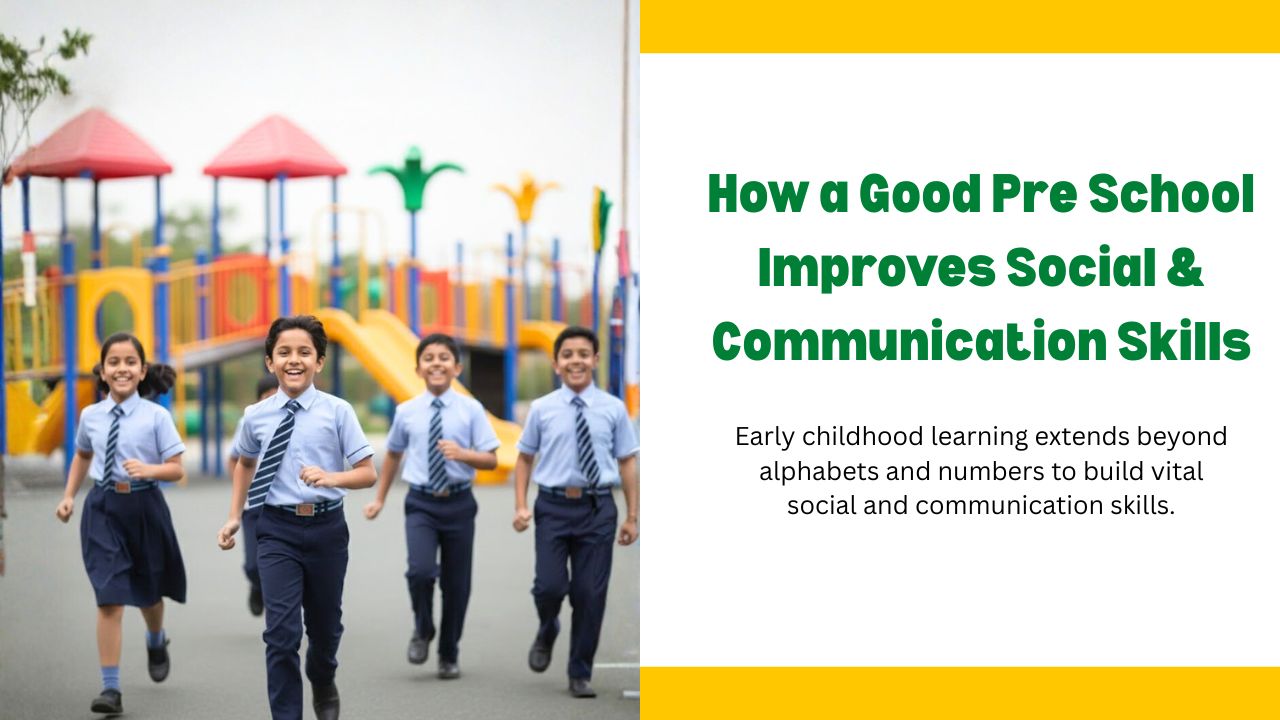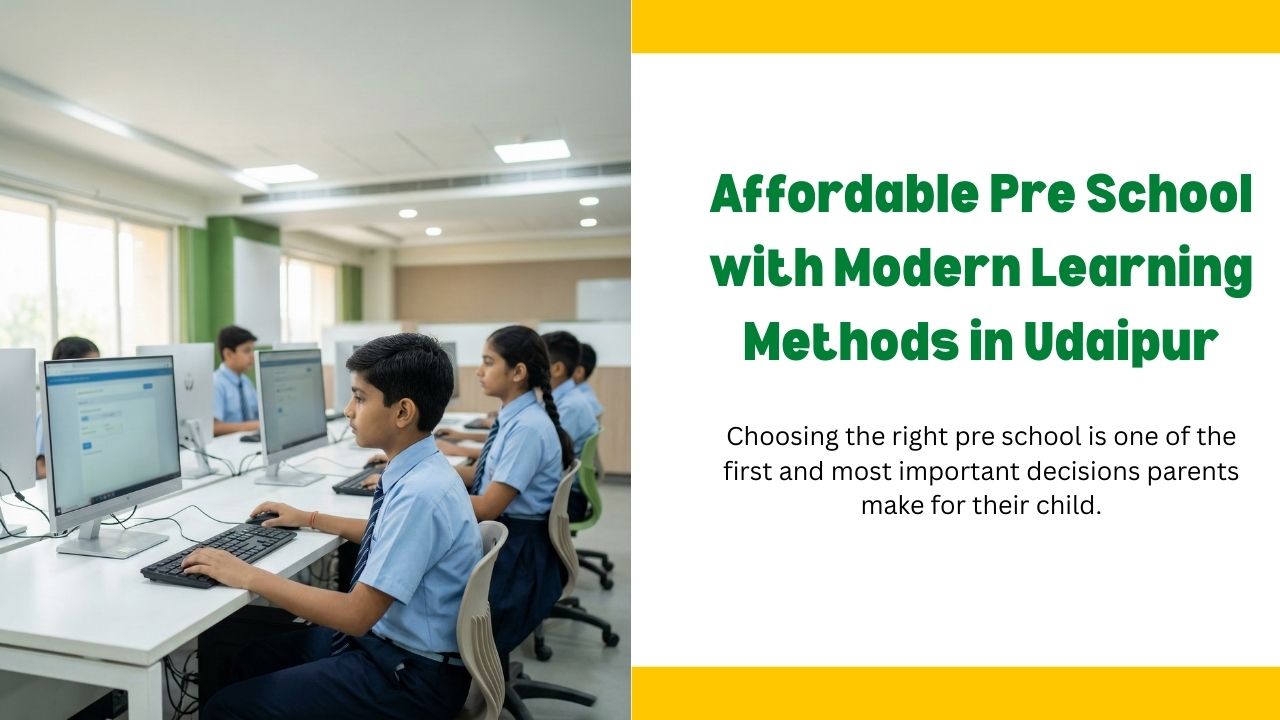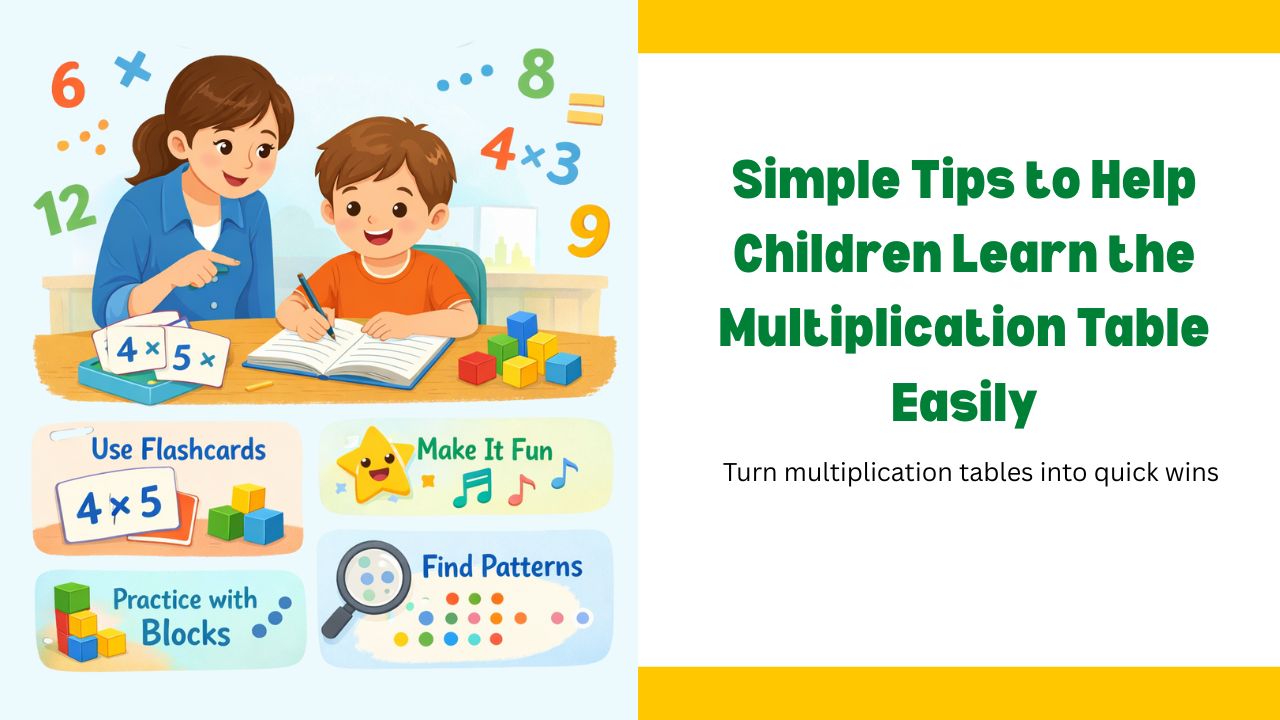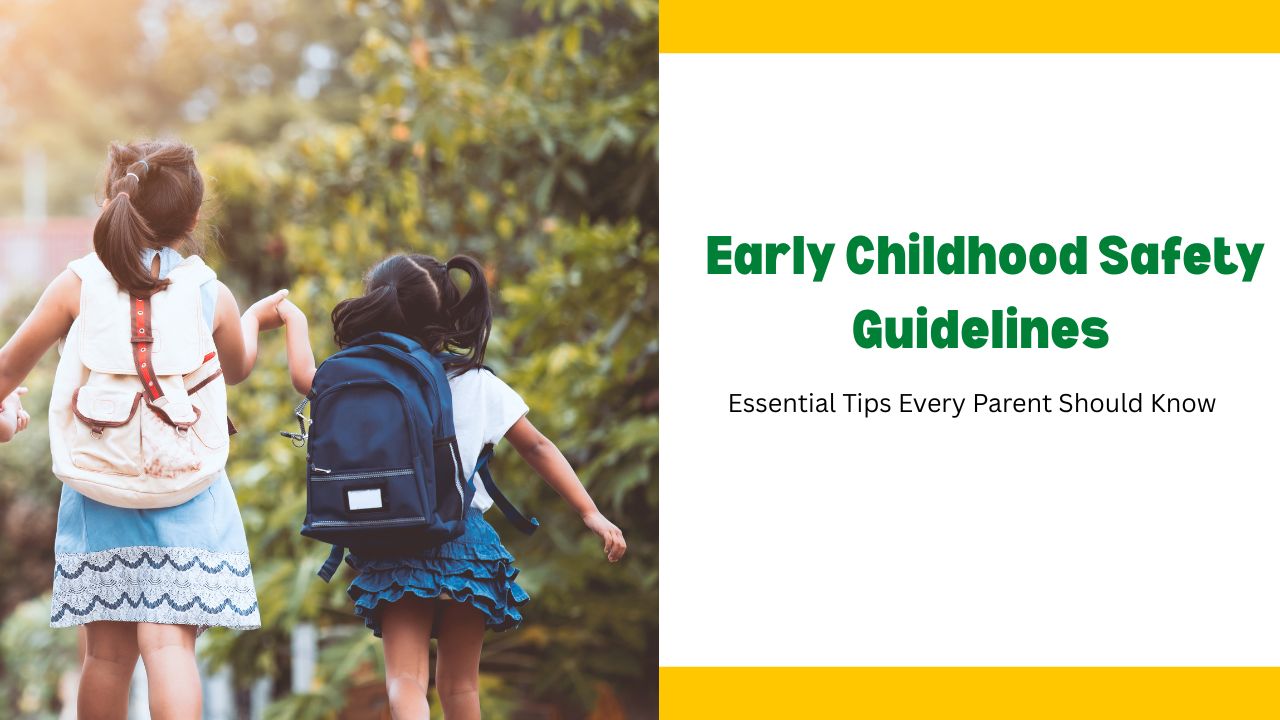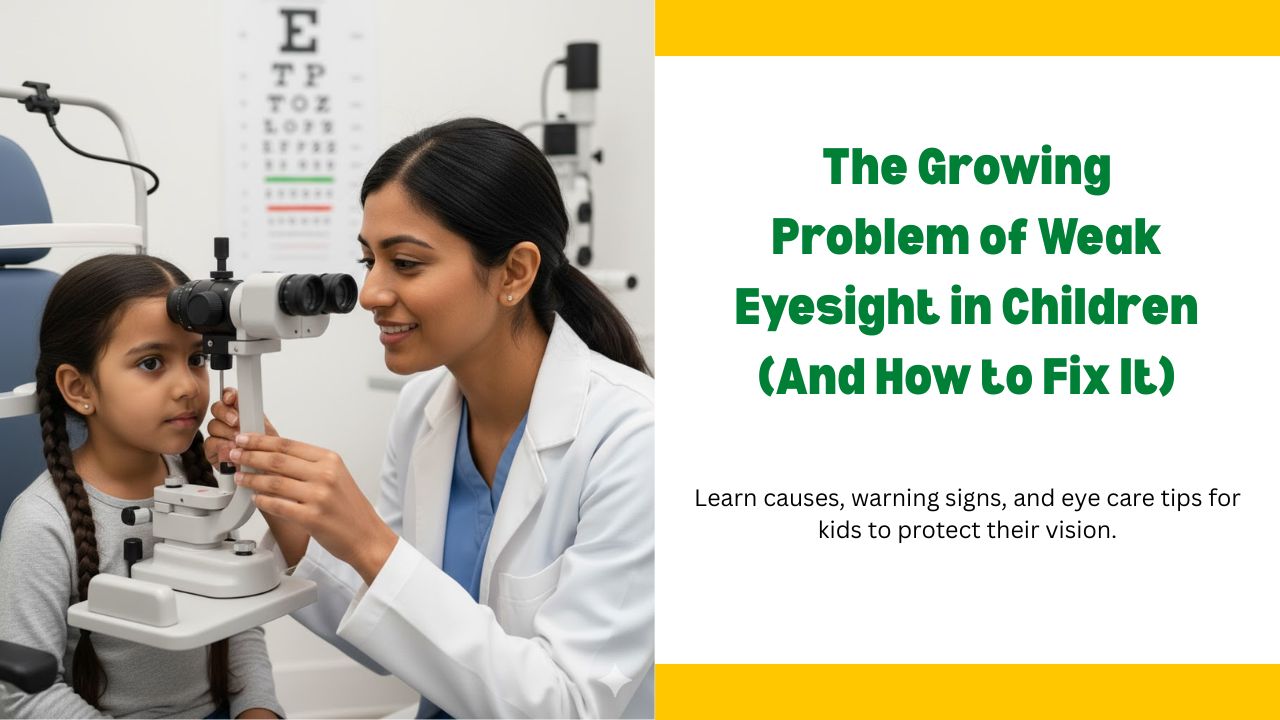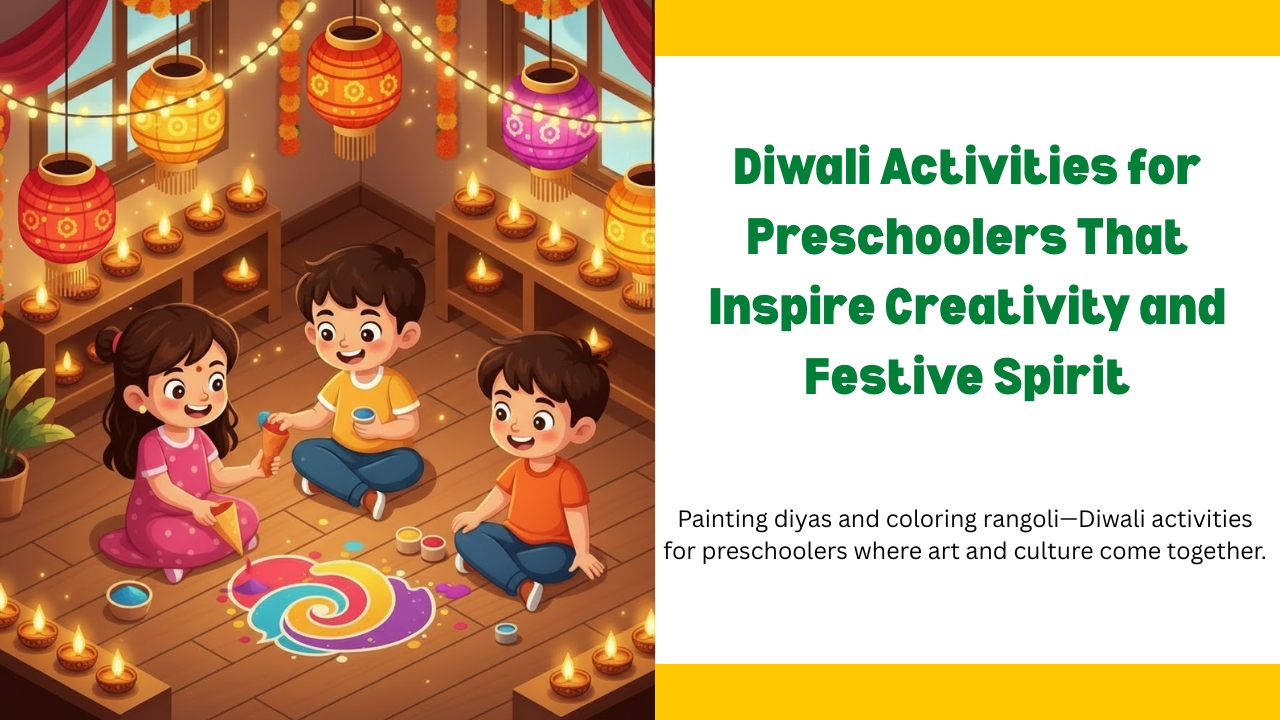Know the essential skills for children that build confidence, creativity, and success from an early age
The first ten years of a child’s life are incredibly important. This is a phase when young minds are the most curious, adaptive, and open to learning. Developing the right set of essential skills for children during this period lays a strong foundation not only for academic achievement but also for personal and social success. Parents and educators must work together to guide children through these early learning experiences.
In this blog, we’ll explore the top 7 essential skills for children to learn before the age of 10. These skills will help your child grow into a confident, creative, and responsible individual who can navigate both classroom learning and life’s challenges with ease.
🗣️Communication Skills
Being able to communicate effectively is one of the most important life skills a child can develop. It includes speaking clearly, listening actively, and understanding both verbal and non-verbal cues—making it a key aspect of child development.
Start early by encouraging your child to express their thoughts, tell stories, and ask questions. Simple conversations at the dinner table, storytelling sessions, or even reading aloud together can greatly improve vocabulary and confidence.
In schools, communication skills are developed through group discussions, classroom presentations, storytelling activities, and reading programs. These activities not only boost language development but also improve social interaction and public speaking abilities—skills that are essential for future success.
😊Emotional Intelligence (EQ)
Emotional Intelligence is the ability to understand, express, and manage emotions effectively. As one of the most important life skills for children, emotional intelligence helps them build stronger relationships, handle stress better, and exhibit empathy toward others.
Parents can promote emotional growth by teaching children to name their emotions, practicing mindfulness, and using role-play scenarios to act out different situations.
In the classroom, teachers nurture EQ through activities like cooperative learning, classroom sharing circles, and social-emotional learning programs. Schools that promote kindness, gratitude, and emotional awareness help children become more balanced and self-aware..
🧠Critical Thinking and Problem Solving
Critical thinking helps children evaluate information and make thoughtful decisions. Problem-solving teaches them how to approach challenges logically rather than react impulsively.
You can foster this skill by encouraging children to ask questions such as “why” and “how.” Activities like puzzles, board games, or even simple experiments at home can stimulate their thinking.
Modern schools use inquiry-based learning methods that allow children to investigate, analyze, and draw conclusions. This approach not only enhances academic performance but also promotes lifelong learning habits.
🎨Creativity and Imagination
Creativity isn’t just for artists—it’s a valuable skill across all fields of life and one of the key life skills for children. Encouraging children to use their imagination helps them think outside the box, solve problems creatively, and express themselves confidently.
At home, creativity can be nurtured through arts and crafts, music, storytelling, or imaginative play with toys and props.
Schools contribute by offering art classes, music lessons, drama activities, and opportunities for free play. Creative expression helps children become more confident and improves their mental flexibility and innovation.
🤝Social Skills and Teamwork
Learning how to interact with others, work in teams, and build healthy relationships is vital. These are among the essential skills for children that support emotional and social growth. Children with strong social skills are more likely to make friends, handle conflicts maturely, and show respect for others.
Parents can teach sharing, turn-taking, and polite behavior through daily interactions and games. Encouraging group play and peer collaboration helps as well.
Schools support this development through group projects, classroom collaboration, and extra-curricular clubs. These experiences teach children the importance of cooperation, empathy, and respect in a team environment.
💻Basic Digital Literacy
In today’s digital world, children are exposed to technology from a young age. It’s important they learn how to use digital tools effectively while understanding the importance of screen limits and online safety.
Introduce your child to educational apps, kid-safe browsers, and tools for learning, but always balance it with offline play and real-world activities. Teach them about passwords, privacy, and respectful online behavior.
Schools today incorporate digital learning through smart classrooms, interactive e-learning modules, and online assignments. They also guide students on digital discipline and encourage responsible use of technology.
⏰Self-Management and Responsibility
Being able to manage time, complete tasks independently, and take responsibility are key qualities that build confidence and maturity. Children who learn responsibility early are more likely to succeed academically and socially.
Start with small tasks at home—making their bed, packing their school bag, or setting simple daily goals. Reward consistency and talk about the importance of discipline.
In school, structured routines, time-bound assignments, and classroom duties help children practice self-management. These habits prepare them to take ownership of their actions and decisions later in life.
🎯Conclusion
Every child is unique, but all children benefit from learning these seven essential skills early in life. These skills form the backbone of personal, emotional, academic, and social success. By nurturing communication, emotional intelligence, creativity, critical thinking, social behavior, digital literacy, and self-management, we help our children grow into capable, responsible, and confident individuals.
Remember, learning doesn’t only happen at school or home—it’s a partnership. When parents and educators work together, the child thrives.
If you’re looking for a school that values holistic development and modern teaching methods, Laureate High School offers the perfect start. We combine academic excellence with life skills to ensure every child grows confidently in a supportive, growth-focused environment.
Follow Us On Instagram:- @laureatehighschool


